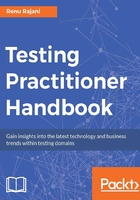
What is the difference between testing in DevOps and traditional life cycle?
While traditional testing places a very high emphasis on process standardization and optimization, DevOps QA focuses more on agility and time to market. Skill sets needed for QA professionals are also undergoing a considerable change. Today’s testers adopt continuous testing techniques, leverage automation, and deploy emerging technologies, such as cloud-based environments and service virtualization.
The mindset of a QA in DevOps is very different from that of a QA in an organization 10 years ago. In the past, the primary job of a tester was to find bugs. Today, QA groups are charged with the responsibility of preventing defects from reaching the end user. QA takes on a critical role in DevOps because it has the visibility and the directive to push code out when it is working and roll it back when it is not.
The skill set required for a QA engineer requires a fine mix of technical and business skills. Testers are quality advocates, influencing both development and operational processes. They don’t just find bugs. They look for any opportunity to improve repeatability and predictability.
QA owns the process of continuous improvement and quality tracking across the entire development life cycle. Testers should have a thorough knowledge of application architecture and design. They should be able to participate in design- and architecture-based discussions and check for product scalability. They should create high quality and maintainable automation frameworks. They should also be capable of building, deploying, managing, and customizing their own test environments and test data.